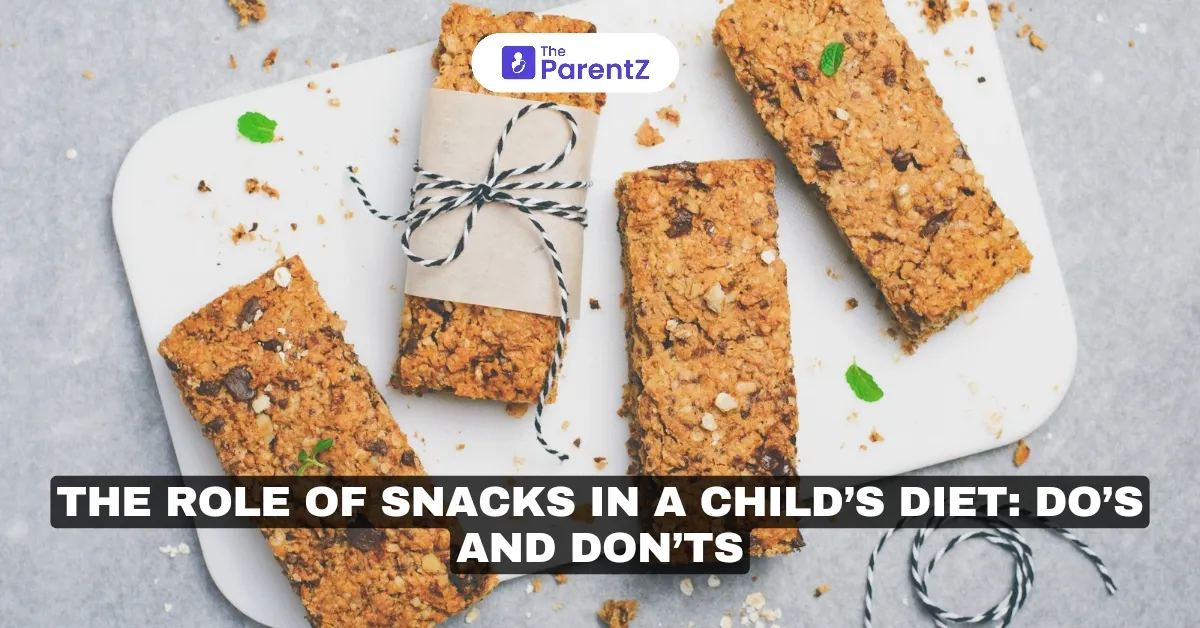Snacks are perhaps the savior during toddler tantrums and something that keeps your kids recharged and going between the meals. But the truth is—not every snack works the same. And their role in your child’s diet can be double-faced—it can benefit or, if not, then harm! However, if snacks are incorporated thoughtfully, they can actually turn into nutritional boosters for your little ones. If mismanaged, they can become the silent culprits behind weight issues, poor nutrition, or bad eating habits.
Read below this article to explore the do’s and don’ts you need to know when it comes to the role of snacks in a child’s diet.
The Do’s of Snacking
Here are a few must-know tips about snacking.
Pick Nutrient-Rich Options
Instead of reaching for chips or sugary treats, switch to snacks rich in protein, fiber, and healthy fats. You can consider incorporating apple slices with peanut butter, cheese sticks, or yogurt with berries. These snack options will not just keep kids fuller longer but also provide a variety of vitamins and minerals.
Plan Snacks Mindfully
Another fact that you probably didn't know about is that a well-timed snack can prevent meltdowns and help maintain energy. The best way is to offer snacks about 2–3 hours after a meal and avoid letting kids graze constantly. This approach will actually help maintain a balance between hunger and satiety.
Portion Size in Check
Snacks can quite easily turn into mini-meals. According to the CDC, childhood obesity rates have tripled over the last 30 years, most certainly due to oversized portions. Therefore, the best way is to serve appropriate portions, such as a handful of nuts or one slice of whole-grain bread, to avoid overfeeding.
Make Snacking Fun
Playing with food isn't always a bad thing, especially with kids. After all, they all love some fun. So, you can involve them in snack preparation to make it a fun session. Let them spread peanut butter, arrange fruit skewers, or mix the batter.
The Don’ts of Snacking
Here are some absolute no’s you need to know about snacking.
No to Processed Foods
The harsh fact is processed snacks are often loaded with sugar, salt, and unhealthy fats. In fact, according to a study, diets high in processed foods are linked to increased risks of obesity and diabetes in children.
Avoid Snacking as a Distraction
The most common mistake that parents make is using snacks as a way to keep kids entertained and distracted. This eventually results in mindless eating. Instead, make it a sit-down activity where kids can focus on their food.
A Strict No to Sugary Drinks
The emphasis on saying no to sugary drinks can never be stressed enough. Even though juices and sodas may be a quick rescue for this hunger, they are loaded with just empty calories. A single 12-ounce soda contains about 10 teaspoons of sugar, far exceeding the daily recommended sugar intake for children. Instead, choose milk or simple water at any time of the day.
Read The Labels
Lastly, even snacks marketed as ‘healthy’ can be deceiving. Therefore, always check the nutrition labels for hidden sugars, artificial additives, and unhealthy fats. You never know when a granola bar boasting low fat might still pack a sugary punch.
Takeaway
Snacking is a great approach to developing healthy habits in your little one that will last a lifetime. Snacking has also been proven to impact a child’s focus, energy, and mood. And what better way to introduce new foods than snacking? However, when it comes to making the right choice, considering the dos and don'ts becomes extremely essential.





Be the first one to comment on this story.